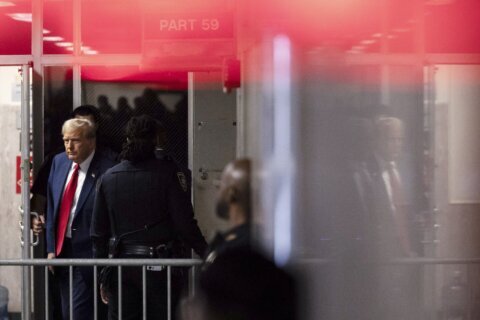NEW YORK (AP) — Three business partners in a Manhattan-based private equity firm were charged Thursday in a high-stakes scheme to use clients’ money to cover fake returns and pay for frivolous luxuries like a sports car and private jets.
Since 2013, about 17,000 people nationwide invested more than $1.7 billion in GPB Capital Holdings and related fraudulent entities — a total “still at risk” for losses since GPB suspended all redemptions and distributions in 2018, according to a Securities and Exchange Commission complaint.
“The aura of success … was an illusion,” it said.
GPB founder David Gentile and two associates, Jeffrey Schneider and Jeffrey Lash, were arrested Thursday on conspiracy to commit securities fraud and other charges filed in federal court in Brooklyn.
Lash, 51, of Naples, Florida, is “a good man with a spotless record” who plans to plead not guilty, said his attorney, Robert Gottlieb. Messages were left with their attorneys for Gentile and Schneider.
The firm had already been beset by legal problems, including the ongoing SEC investigation and a FBI raid of its offices in late 2019. Last year, a former SEC employee pleaded guilty to charges that he “accessed confidential information” from agency files in advance of an interview for a a job with GPB that ended up holding for less than a year.
The victims of the “Ponzi-like scheme” included 1,400 New Yorkers who deserve $700 million in restitution, state Attorney General Letitia James said on Thursday in announcing one of several related lawsuits against the firm and its entities.
“GPB and its operators fleeced New Yorkers and investors around the country while subsidizing their own lavish lifestyles,” James said in a statement.
Investors paid for private planes and payments to Gentile’s wife, the attorney general suit said. Gentile had one of his companies purchase a Ferrari for his personal use and also “shifted nearly $5 million of personal liabilities to investors,” it added.
The defendants sought to use the portfolios invested in car dealerships and other businesses to raise hundreds of millions of dollars between 2013 and 2018. They assured investors an 8% annual return, knowing they couldn’t generate enough income to back it up, SEC complaint said.
According to the indictment, private communications between the defendants showed they were aware that the cash flow for GPB couldn’t cover payments to investors.
The court papers said that when founder David Gentile sent a 2016 text message warning about the shortfall, associate Schneider replied, “we have to man up and write checks which is simply giving back dollars we already received.”
Copyright © 2024 The Associated Press. All rights reserved. This material may not be published, broadcast, written or redistributed.







